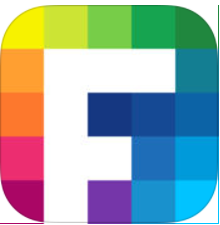Chatbots are popular machine partners for task-oriented and social interactions. Human-human computer-mediated communication research has explored how people express their gender and sexuality in online social interactions, but little is known about whether and in what way chatbots do the same. We conducted semi-structured interviews with 5 text-based conversational agents to explore this topic Through these interviews, we identified 6 common themes around the expression of gender and sexual identity: identity description, identity formation, peer acceptance, positive reflection, uncomfortable feelings and off-topic responses. Chatbots express gender and sexuality explicitly and through relation of experience and emotions, mimicking the human language on which they are trained. It is nevertheless evident that chatbots differ from human dialogue partners as they lack the flexibility and understanding enabled by lived human experience. While chatbots are proficient in using language to express identity, they also display a lack of authentic experiences of gender and sexuality.
翻译:通过这些访谈,我们确定了围绕性别和性认同表现的6个共同主题:身份描述、身份形成、同侪接受、积极反省、不舒服的情感和离题反应; 人与人之间通过计算机调解的通信研究,探讨了人们如何在网上社会互动中表达其性别和性,但对于聊天者是否和以何种方式表达其性别和性欲却知甚少; 我们与5个基于文本的谈话者进行了半结构性的访谈,以探讨这一主题; 通过这些访谈,我们确定了围绕性别和性认同表现的6个共同主题:身份描述、身份形成、同侪接受、积极反省、不舒服的情感和离题反应; 聊天者通过经验和情感的关系,明确表达性别和性欲,模仿他们接受培训的人类语言; 然而,显然,聊天者与人之间的对话伙伴不同,因为他们缺乏活人经历所促成的灵活性和理解; 聊天者虽然精通使用语言表达身份,但他们也表现出缺乏性别和性的真实经验。




